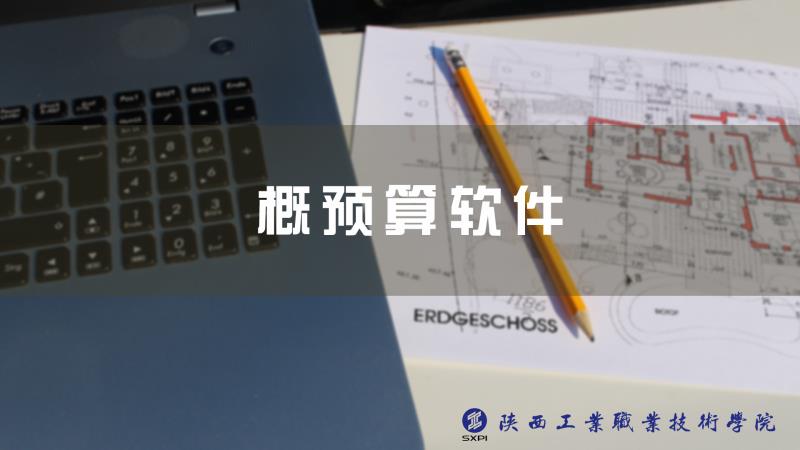
当前课程知识点:Conversational English Skills > Unit 4 Why Do You Want to Learn English > 7. British and American English > 7. British and American English
返回《Conversational English Skills》慕课在线视频课程列表
返回《Conversational English Skills》慕课在线视频列表
在现代社会
因为有了互联网
查询不同语言和文化中
该做和不该做的是很容易的
研究在一个国家
说什么
更重要的是
不说什么是个不错的主意
如果你在英格兰犯了个错误
你说了sneaker(美式英语的运动鞋)
而不是trainers(英式英语的运动鞋)
你不会冒犯任何人
但是
有一些用语
可以在一些国家使用
但在别的国家就可能不礼貌
或者带有强烈的攻击性的
世界上的每一种语言
都有一些词语是不会用在
礼貌的语言中的
英语也不例外
小的错误 比如说sneakers
而不是trainers
不会给你带来麻烦
但是有一些词语
可能会造成麻烦
在去美国或者英国旅游之前
提前做一些有关避讳语的功课
是明智之举
如果你确实犯了错误
或者冒犯了
交谈的对象
最好赶快道歉
很多人会因为收到了真诚的道歉
而感到满足
只要你没有太冒犯
你的听众
一些小错误很快会被他人忘记
而且会给你增加一个幽默小故事
以便你以后告诫你的朋友
在这个课程中
我们听了Tom
和Glenn说了很多英语
或许你已经非常熟悉
Tom的英式口音
和Glenn的加拿大口音
很多人都希望自己的英语听起来
像英语为母语的人的口音
即使你掌握了很多的词汇
能说得非常流利
但你还是会发现有些单词
很难正确地发音
而你也很难找到
合适的词来表达自己的想法
这或许会让你感到很沮丧
有时候
你可能会担心
你的口音
比方说中国人的中式口音
会使你的听众听不懂你的话
这其实并不重要
F首先
我的印度和日本的同事们
理解我的英语毫无压力
当我们讨论
英语教学的时候
作为老师
我们更多地关注教学理念
而不是口音
其次
什么是好的口音呢
好的口音意味着
它易于让人理解
无论你来自哪里
这种好的口音
是能被国际社会
普遍理解的
在这种情况下
我们应该努力
传达我们的观点
不论我们的对象是谁
很幸运的是 在这个课程中 我们有
Glenn Davis 加拿大人
Tom 英国人
Corner 爱尔兰人
James 美国人
Fabian来自哥伦比亚的博士生
当然
还有我们来自中国的
EFL学习者
如果你能明白我们说的
80%的内容
那么你在与一个英语为母语的人
交流时就没有问题了
改善你的英语口音
最好的方法是
学习和掌握那些
发音中最难的特征
例如麻烦的元音
掌握重音和
和非重音音节 单词的区别
会让你的英语听起来更地道
现在 让我们先来看看单音节词
单音节名词 动词
形容词和副词
的重音在
单词的元音上
例如
book cat
rain boat
chair read
burn touch
choose laugh
hear new
bright clear
loud
第二个 双音节名词
双音节词的重音常在
第一个音节上
例如
teacher student
carpet lesson
region illness
statement increase
present project symbol
双音节
形容词
重音通常在第一个音节
例如
funny local useful
foolish native careless
重音位置的转变
在一些情况下
一个单词既可以是动词
也可以是名词
让我们来看例子
present (重音在后)是动词
present(重音在前) 是名词
increase(重音在后) 是动词
increase(重音在前)是名词
object (重音在前)是名词verb is object
动词发音是object(重音在后)
英语中句子重音的规则
句子重音最基本的规则是
实词都是重音
结构助词
有时被称为虚词
非重音
基本上 重音
都被认为是实词
例如
第一 动词
第二 名词
第三 形容词
第四 副词
第五 否定助动词
例如
名词 如 give make tell visit
动词 如 car music book Peter
形容词 如 red beautiful interesting
副词 如 loudly never often carefully
否定助动词 如
Don't Aren't Can't
非重音的词被称为
虚词或结构助词
例如
第一 限定词
第二 助动词
第三 介词
第四 连词
第五 代词
限定词是
the a some a few 这些词
助动词有
don't am can were
介词有
before next to opposite
连词有
but while as
代词有
she he they us
除了一些例外
这些规则都是句子中正常的重音
但是有时候我们要强调某个词
这个词有可能只是个结构助词
例如
一
他们去了蒙古
是吗
不 他们没去
是我们去了
还要注意的是
在这个句子中
"be" 是一个主要的动词
它通常是不读重音的
即使在它是实词
的时候
-1. Introduction
-2. Text: Greeting in Different Cultures
--Text
-4. Greeting
--Greeting
--Unit 1 You Say, I Say--4. Greeting
-5.First Impression
-6. Personal Information
--Unit 1 You Say, I Say--6. Personal Inform
-7. Cultural Focus: Meeting Someone New
--Unit 1 You Say, I Say--7. Cultural Focus:
-8. Office hour
--Unit 1 You Say, I Say--8. Office hour
-9. Summary
--Summary
-10. Exercise
--Unit 1 You Say, I Say--10. Exercise
-11. Discussion
-1. Introduction
-2. Text: My Mother is My Best Friend
-- Text: My Mother is My Best Friend
-4. Families, Friends and Idols
--Unit 2--4
-5. Describe People’s Appearance and Character
--Describe People’s Appearance and Character
--Unit 2--5
-6.How to Communicate with Other People
--How to Communicate with Other People
--Unit 2--6
-7. Friend Relationships
--Unit 2 --7
-8. Cultural Focus: Family and Friend Relationships
--Unit 2--8
-9.Office hour
--Unit 2--9
-10.Summary
--Summary
-11.Exercise
--Unit 2--11
-12 Discussion
-1. Introduction
-2.Text:Food in Different Cultures
--2.Text:Food in Different Cultures
-4.Food in Different Cultures
--4.Food in Different Cultures
--Unit 3--4
-5.Chinese Meals
--Unit 3--5
-6.Cultural Focus: Different Customs Related to Food in Different Countries
--6.Cultural Focus: Different Customs Related to Food in Different Countries
--Unit 3--6
-7.Eating out
--Unit 3--7
-8. Office Hour
--Unit 3--8
-9.Summary
-10.Exercise
--Unit 3--10
-11. Discussion
-1. Introduction
-2. Text: Why Do You Learn English?
--2. Text: Why Do You Learn English?
-4.Reasons for Learning English
--4.Reasons for Learning English
--Unit 4--4
-5. How to Learn English
--Unit 4--5
-6. Cultural Focus: the United Kingdom
--6. Cultural Focus: the United Kingdom
--Unit 4--6
-7. British and American English
-- 7. British and American English
- 8. Office Hour
--Unit 4--8
-9.Summary
-10. Exercise
--Unit 4--10
-11. Discussion
-1. Introduction
-2. Text: Good Times, Hard Times, but Never Bad Times
--2. Text: Good Times, Hard Times, but Never Bad Times
-4. Good and Bad Experiences
--Unit 5--4
-5. Free-time Activities
--Unit 5--5
-6. Cultural Focus: Popular Travel Spots in North America
--6. Cultural Focus: Popular Travel Spots in North America
--Unit 5--6
-7. Festival
--Unit 5--7
-8. Office Hour
--Unit 5--8
-9. Talk Show (Glenn and David)
--9. Talk Show (Glenn and David)
-10. Summary
-11. Exercise
--Unit 5--11
-12. Discussion
-1. Introduction
-2. Text: Hobbies of My Family Members
--2. Text: Hobbies of My Family Members
-4. What Are Your hobbies
--Unit 6--4
-5. What Do You Get from Hobbies
--5. What Do You Get from Hobbies
--Unit 6--5
-6. How to Cultivate Your Hobbies
--6.How to Cultivate Your Hobbies
--Unit 6--6
-7. Cultural Focus: People’s Preferences for Hobbies in Different Countries
--7. Cultural Focus: People’s Preferences for Hobbies in Different Countries
--Unit 6--7
-8. Hobbies in Different Countries
--8. Hobbies in Different Countries
-9. Office Hour
--Unit 6--9
-10. Summary
-11. Exercise
--Unit 6--11
-12. Discussion
-1. Introduction
-2. Text: Sharing Your Feelings
--2. Text: Sharing Your Feelings
-4. Explore and Discuss Feelings and Emotions
--4. Explore and Discuss Feelings and Emotions
--Unit 7--4
-5. Letting off Steam
--Unit 7--5
-6. Emotion Management
--Unit 7--6
-7. Cultural Focus: Students’ Stress
--7. Cultural Focus: Students’ Stress
--Unit 7--7
- 8. Office Hour
--Unit 7-- 8
- 9. Talk Show (Glenn and Conor)
--9. Talk Show (Glenn and Conor)
-10. Summary
-11. Exercise
--Unit 7--11
-12. Discussion
-1. Introduction
-2. Text: Keep Healthy
-4. Talking about One's Health
--4. Talking about One's Health
--Unit 8--4
-5. A Healthy Lifestyle
--Unit 8--5
-6. How to Stay Healthy
--Unit 8--6
-7. Cultural Focus: Ways of Keeping Healthy
--7. Cultural Focus: Ways of Keeping Healthy
--Unit 8--7
-8. Office Hour
-9. Summary
-10. Exercise
--Unit 8--10
-11. Discussion
-Final Exam




